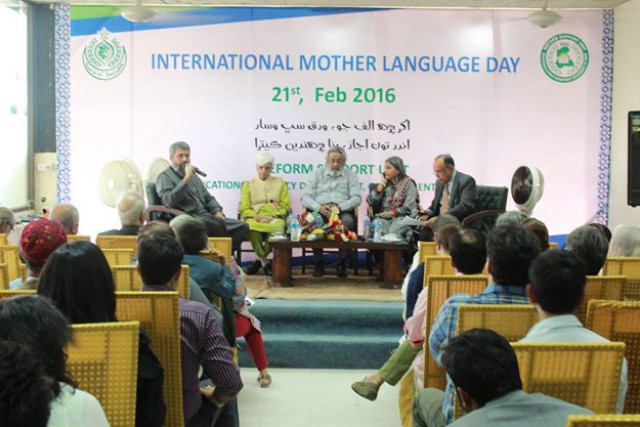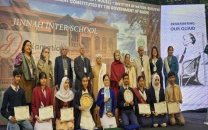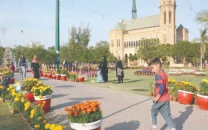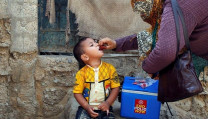Mind your language: Experts discuss link between mother tongue and academic success
International Mother Language Day marked with talk on its importance

International Mother Language Day marked with talk on its importance. PHOTO: facebook.com/rsueld
The theme for International Mother Language Day 2016 is quality education, language of instruction and learning outcomes, which is in line with 2030's Sustainable Development Goal number four: education.
"There is a strong emphasis on the importance of appropriate languages of instruction, usually mother tongues, in the early years of schooling on a global level," said RSU policy coordinator Professor Aijaz Ahmed Qureshi.
For educationist Ghazala Rehman, language or mother tongue is the medium of instruction and interaction between people. No language should be considered 'exclusive', rather they should all be inclusive so they can be accepted by everyone, she added.
Explaining what happens when you do not give importance to your own language, she shared a friend's experience who was called by the school administration of an English medium school where her children study. Rehman said the principal asked her friend not to talk to her children in Sindhi at home because it negatively affects their English learning skills.
Pointing out how she used to teach Urdu in early 80s to students whose mother language was Sindhi, Rehman said she used flashcards with pictures to teach them but it was still difficult for students to pronounce the words correctly.
By remembering our mother tongue once a year, people also remember their roots, she said. "Ancient languages contain roots of several other languages," she said.
Referring to UNESCO's report on education and language, renowned journalist Zubeida Mustafa said, "If you do not understand what you are studying, then how can you learn". According to a number of studies, 40% of students around the globe study in their mother tongue. "This is one of the main reasons behind the dropout ratio of students, because when they do not understand what's happening in the classroom, they do not build an interest in studying," she explained.

Suggesting ways to bring reform in Sindh's education sector, Mustafa said mother language should be given priority. Mentioning surveys, she revealed that over 90% of students do well in school if they learn in their mother language, whereas more than 50% fail when taught in a different language.
Mustafa said a common misperception in Pakistan is that if your child can speak English well, then he will be able to learn everything and will do well in life. "Language is linked with the education system and a child should be taught in their mother language till at least five years of age," she added.
According to fiction writer Amar Jaleel, language is a means of communication which cannot be changed. He said while languages never change, socio-political interference changes the community set up and affects languages.
Chief programme manager for RSU, Faisal Ahmed Uqaili, informed the audience about the ongoing projects in the education department and how they are managing different budgets in government schools to reform the education system.
Published in The Express Tribune, February 22nd, 2016.


















COMMENTS
Comments are moderated and generally will be posted if they are on-topic and not abusive.
For more information, please see our Comments FAQ